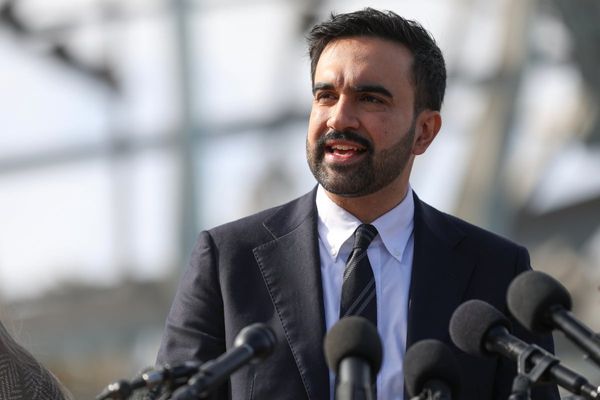
When a prime minister is forced to deploy his cabinet to try to contain a rebellion, it is not a sign that things are going well. For one with a working majority of 165 MPs, it suggests that things are, in fact, going very badly.
This was the scenario Keir Starmer faced on Tuesday after more than 100 Labour MPs signed an amendment to his welfare bill which could blow up his attempts to reform the disability benefits system.
Liz Kendall, the work and pensions secretary, spent the day in one-to-one meetings with MPs who are deeply concerned about the impact of the cuts on the most vulnerable people. Ministers including Angela Rayner, Jonathan Reynolds and Wes Streeting hit the phones.
Whips and government aides were also deployed, with rebel MPs told their colleagues were removing their names from the amendment, and unsanctioned briefings that the vote should be treated as a confidence issue.
There were even claims – denied by No 10 – of aides issuing veiled threats to MPs about deselections and warning that a defeat could bring the government down. Yet the attempts did not appear to be moving the dial.
A leading Labour rebel suggested that the number of MPs who had signed the amendment on Monday night – 108 – had now risen to 127, though that number cannot be confirmed until after the House of Commons rises late on Tuesday night.
“The numbers have definitely been moving, but not necessarily in the right way,” admitted one government insider.
Yet there are also those inside government who are frustrated at No 10’s handling of welfare reform. First, for failing to understand until it was too late that they needed to get Labour MPs onside. The view inside No 10 had been that they should focus on the public.
“Of course it is ultimately public opinion that matters, but you’ve got to get to that point first, and you need the parliamentary party to do that,” said one critic. “They thought they could make MPs blink first, but it doesn’t look like they’re going to.”
Second, for focusing too much on the financial case for reforming the welfare system – that the ballooning bill was unsustainable – rather than on the moral one, which would have been that the current system was letting down millions of people who could be supported into work.
At the time of the spring statement, ministers said there were two justifications for the move: to get people off benefits in the long term, and that £5bn cuts to health and disability benefit were needed to make sure the system remained financially sustainable.
“They didn’t make the moral case properly because they were so focused on the money. Of course that’s important but it was the wrong way round,” said one source. Senior Downing Street figures have since privately conceded that the approach was wrong.
Third, the government announced the benefit cuts at the same time as setting out how unemployed people would be helped back into work, with £1bn of additional support available, rather than first making sure that help was in place before cutting their incomes.
Kendall, MPs say, was one of the few Labour figures who understood the back-to-work reforms should be a priority, and had argued for as much of the savings from cuts as possible to be ploughed back into the system.
Having spent weeks speaking to angry and worried backbenchers, she offered them an olive branch this month, with added protections for the most vulnerable benefits recipients. But it was too little, too late.
The scale of the rebellion appears to have taken No 10 by surprise, not least because much of the planning took place below the radar, and through separate groups of MPs coming together. Even some of the rebels were shocked at the numbers.
But although Downing Street promised it was in “listening mode”, there are few indications, for now, that it plans to change its mind before the vote on Tuesday 1 July.
A stern-looking Starmer told reporters at the Nato summit in The Hague that the welfare system was broken “and that’s why we will press ahead with our reforms”. Downing Street rejected suggestions the welfare bill was “dead on arrival”.
Government insiders say dropping the bill would be impossible anyway, not least because it would leave the chancellor, Rachel Reeves, with a £5bn hole to fill.
So they will spend the days ahead making their case for reform, while reminding MPs that governing involves tough choices, and hoping that when push comes to shove, they will balk at voting against the government.
Yet there are still those who believe that, if the number of rebels does not start to fall, Starmer may have to delay the vote, with all the political humiliation that would entail. One minister observed: “I don’t think the final chapter of this particular story has yet been written.”







